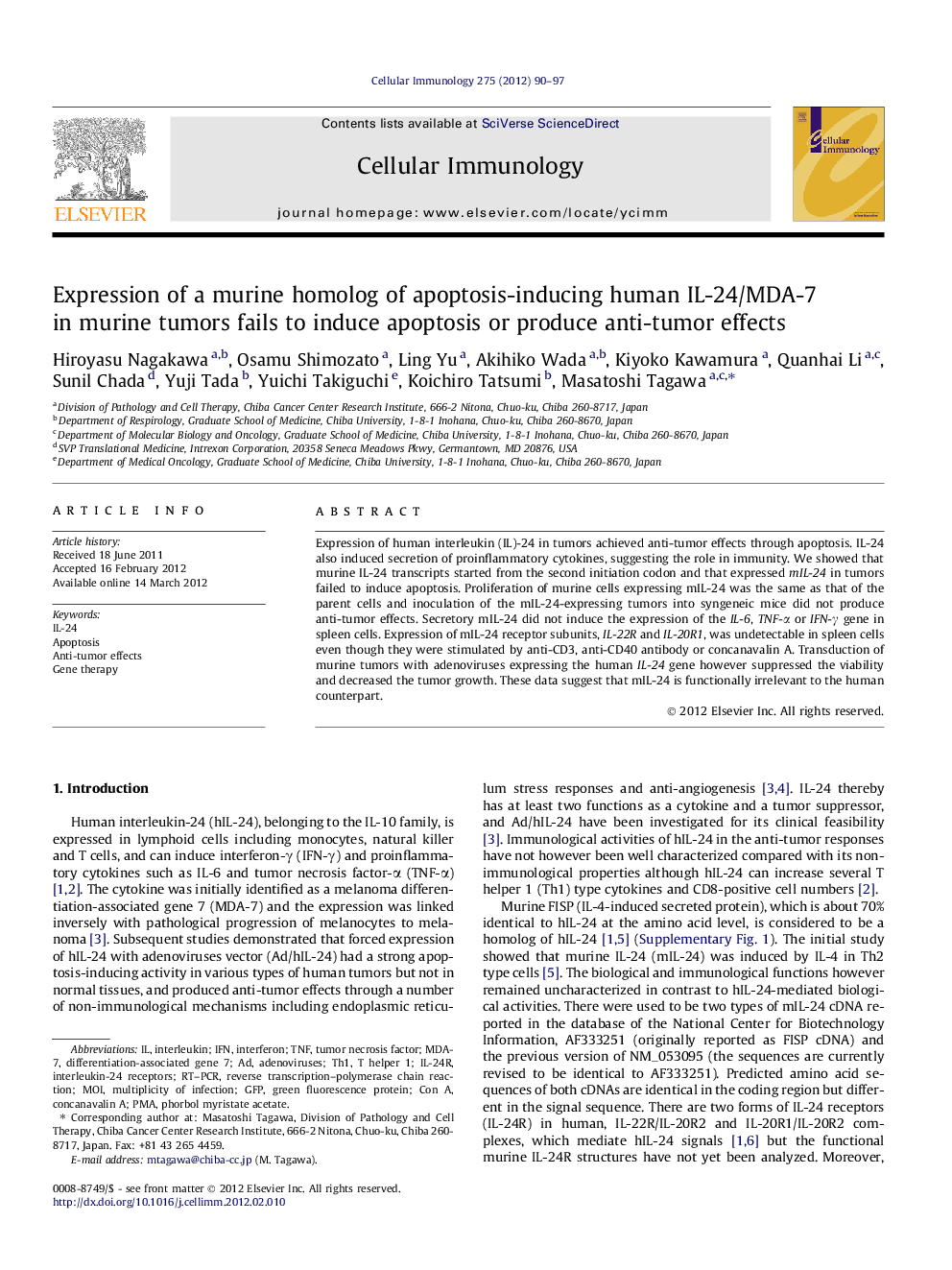| Article ID | Journal | Published Year | Pages | File Type |
|---|---|---|---|---|
| 2167242 | Cellular Immunology | 2012 | 8 Pages |
Expression of human interleukin (IL)-24 in tumors achieved anti-tumor effects through apoptosis. IL-24 also induced secretion of proinflammatory cytokines, suggesting the role in immunity. We showed that murine IL-24 transcripts started from the second initiation codon and that expressed mIL-24 in tumors failed to induce apoptosis. Proliferation of murine cells expressing mIL-24 was the same as that of the parent cells and inoculation of the mIL-24-expressing tumors into syngeneic mice did not produce anti-tumor effects. Secretory mIL-24 did not induce the expression of the IL-6, TNF-α or IFN-γ gene in spleen cells. Expression of mIL-24 receptor subunits, IL-22R and IL-20R1, was undetectable in spleen cells even though they were stimulated by anti-CD3, anti-CD40 antibody or concanavalin A. Transduction of murine tumors with adenoviruses expressing the human IL-24 gene however suppressed the viability and decreased the tumor growth. These data suggest that mIL-24 is functionally irrelevant to the human counterpart.
► Murine IL-24 did not induce apoptotic cell death in contrast to human IL-24. ► Murine IL-24-expressing tumors did not produce anti-tumor effects. ► Expression of murine IL-24 receptor subunits was undetectable in activated spleens. ► Biological significance can be different between murine and human IL-24.
